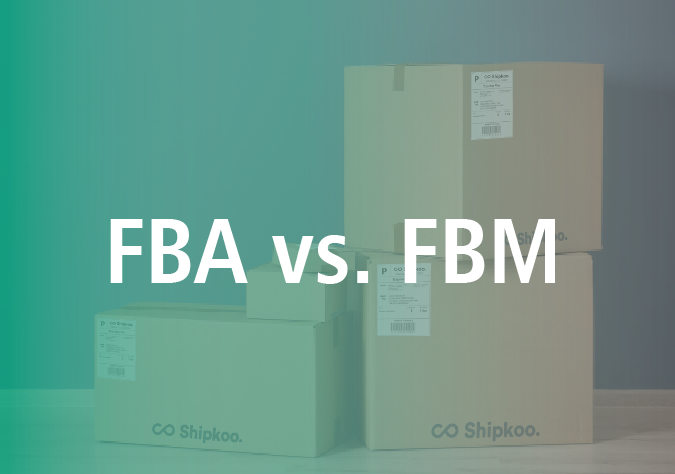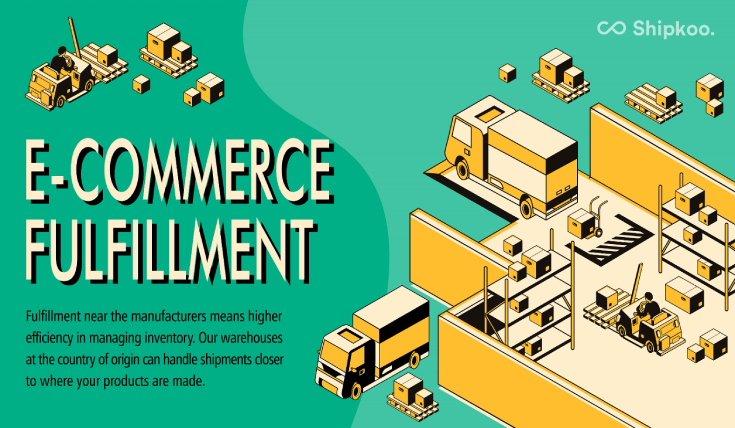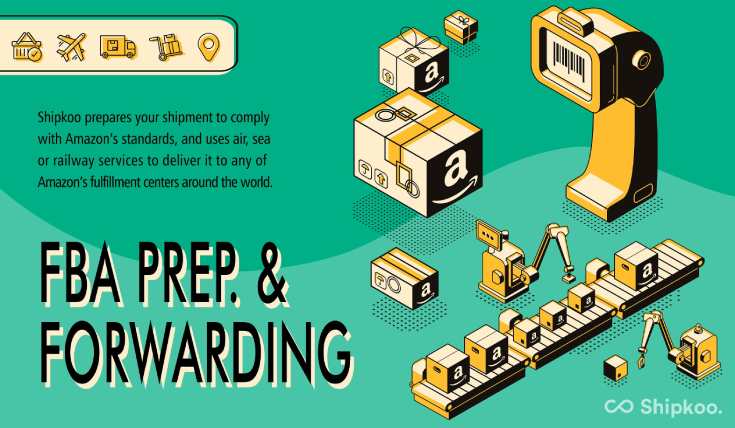Amazon Fulfillment Methods
More and more people across the world flock to Amazon to sell products and build their online business on the eCommerce giant’s marketplace. Amazon is well-known for its prime delivery, which is made possible by Amazon’s own logistics network. It is estimated that if Amazon’s logistics subsidiary would be an independent company it would be one of the largest delivery companies in the world. However, it is important for sellers to know when and how to use Amazon’s logistics network and what is the best option for your business. The main difference to be aware of is between the fulfillment methods FBA and FBM. Which fulfillment method you choose can have a significant impact on your costs, level of control, and degree of responsibility.
What is Fulfillment by Amazon (FBA)?
FBA stands for Fulfillment by Amazon, which is a subscription service Amazon sellers can pay Amazon to use. It covers storage, shipping, customer service and returns for your sales on the marketplace. A key element of FBA is that Amazon holds your inventory. You can choose between FBA and FBM on a product-by-product basis, based on your preference, cost levels, and shipping delays.
Pros of using FBA
Prime eligibility
Your products are automatically eligible for Amazon Prime free two-day shipping and other Prime benefits such as free shipping. With Prime, you will likely sell more inventory, since your products will be preferred on the Amazon platform and they are more likely to appear higher up in the search results.Management of inventory
In the case of FBA, Amazon takes care of inventory, pick & pack , delivery and returns. This can be highly convenient, since you are completely relieved of any of these logistical burdens. Amazon has many warehouses across the world, which means you can have your products stored closer to your customers. Where your customers are can be an important factor to consider for whether to choose FBA or FBM.No customer service needed
Amazon manages most of your customer service including returns of products. It provides the same standard of customer service as it does with its own products. Therefore, there is no need to worry about after sales- services.

What is Fulfillment by Merchant (FBM)?
FBM means Fulfillment by Merchant. Amazon merchants who do not use FBA ship their orders directly to clients, handle customer service, and manage returns themselves. When fulfillment is handled by the merchant, in the FBM model, the buyer purchases products on Amazon, but the merchant is entirely responsible for delivering them.
Pros of using FBM
Direct customer relationship
When you manage customer service yourself, you can establish relationships for the long term. Personalized customer care is something only you can give. Many businesses aim to learn from every customer interaction to improve their products and their customer understanding. This is only possible with FBM.Higher margins
Because you’re paying fewer fees without having Amazon fulfill the orders, you will likely make more on each sale (depending on the product). Your fulfillment process will appear less expensive with FBM. But this may be because you're using your own resources which you pay for anyway: storage space and time spent on customer communication. It is important to make a detailed cost analysis to find out how much FBM actually saves you in costs.More process control
With FBM, you are in charge of the entire client fulfillment process, allowing you to change or improve it. You can play around with packaging and delivery modes to find the best solution for you and your customers.

FBA vs. FBM: Which is the best choice for eCommerce sellers?
FBA is typically best for high volume, large margin products. This type of fulfillment is for sellers who are willing to drop the selling price to the lowest possible profit point if necessary. FBM is generally good for smaller scale, small margins products or one-offs. FBM allows sellers to take control of the fulfillment process without crushing small margins.
Another important factor to consider is where you manufacture your products and where most of your customers are located. If they are in the same or a nearby country (e.g. two countries in Europe) it might be better to opt for FBM, as you can dropship directly from the manufacturer to the customer. If the country of origin and country of destination are more distant (e.g China and the UK) it might be better to go for FBA. You can ship large volumes by sea or truck to the FBA warehouse.
Ultimately, there’s no perfect formula when it comes to FBA vs FBM, and it is up to you and your business’ needs. If you’re still not sure which fulfillment method to utilize, reach out to a shipping specialist from Shipkoo, who will be happy to assist you throughout the entire process at no cost to you.
If you choose to use FBA, Shipkoo has helped many online sellers to manage inventory flows to Amazon. We prepare your shipment to comply with Amazon’s standards, and use sea freight or truck shipping services to deliver it to any of Amazon’s fulfillment centers. You can eliminate the hassle of handling inventory and focus on growing your business through Shipkoo.
If you think that FBM is more suitable, try out Shipkoo’s eCommerce fulfillment service. We help you to pick, pack and dispatch your orders from any of our fulfillment centers and ship them to your worldwide customers.

Share the article
Sign Up for Shipping Solution Updates
Get weekly insights the logistics and fulfillment




